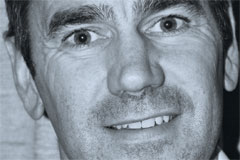This summer promises another sporting extravaganza. The Euro 2016, Tour De France and the Rio Olympics, to name a few events that have whetted my appetite, with feats of skill, speed and endurance on display.
Complicity or simply good medical care?
But along with great sporting arenas and achievement we will also get our fair share of doping stories as well; the cheats getting caught out and exposed for all to see. My first exposure to this activity was on my elective in 1988. I was struggling through a stint at Kingston public hospital (the one in Jamaica not London). My friend and I took the opportunity to also travel around a few of the Caribbean islands and I found myself on an idyllic beach in St Kitts, supping an ice cold beer at a tiny, stand up bar in the middle of a perfect curve of 100 yards of white sand. The barman introduced us to the only other client – a small, muscular man who turned out to be Ben Johnson, the Canadian athlete. Only a few months later, he crossed the line in Seoul with his eyes nearly popping out and the rest is history.
He was there to see his doctor and receive illicit treatment and monitoring. If you read (as I have done) any reports from doping agencies (WADA/USADA) you will see that there is nearly always a doctor at the heart of the cheating, complicit with illegal activity.
Can you imagine if you came face-to-face with this? It’s Monday morning surgery and you’re about to embark on your own feat of endurance – a day on call fuelled only by a triple shot of espresso. In walks Mr Gym, bedecked in an obligatory Lonsdale T-shirt displaying biceps bigger than a small house, and an aggressively sheepish look on his face. He wants to talk about ’supplements’ and how to monitor his use of them. You are able to establish that he is not referring to an extra portion of probiotics with his morning protein shake, but something a little stronger. Once you’ve got over the question of why on earth anybody would want to not only cheat, but put their own health at risk as well, what do you see as your role? Is it simply to point him towards the brassiere section of M&S and sympathetically advise him that his testicles might shrivel to the size of raisins? Or do you agree that he needs monitoring of blood pressure, lipids, liver function and other cardiac risk factors on a regular, ongoing basis? Complicity or simply good medical care?
It should probably be no different to managing any patient putting themselves at risk, via legal or illegal means. To me though, it feels wrong. Is it just because I feel angered by all the sporting cheats, never knowing if I am witnessing sporting greatness or the results of performance brewed in a test tube?
Or is it that I just don’t like cheats?
Whatever the reasons, I must remember that my job is not to like people but to help them, even if I feel appalled by their behaviour. This is another fine example of the complexity of our job, balancing right and wrong, and the need to prioritise patient needs over our own moral views.
It’s never boring is it?
Richard Cook is a GP partner in Hurstpierpoint, West Sussex. You can follow him on Twitter @drmoderate
Pulse July survey
Take our July 2025 survey to potentially win £1.000 worth of tokens












